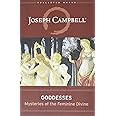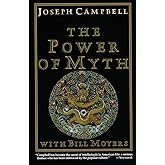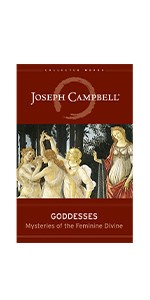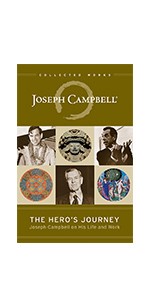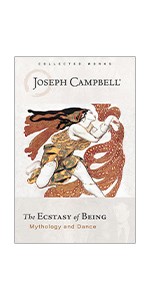
Amazon Prime Free Trial
FREE Delivery is available to Prime members. To join, select "Try Amazon Prime and start saving today with FREE Delivery" below the Add to Cart button and confirm your Prime free trial.
Amazon Prime members enjoy:- Cardmembers earn 5% Back at Amazon.com with a Prime Credit Card.
- Unlimited FREE Prime delivery
- Streaming of thousands of movies and TV shows with limited ads on Prime Video.
- A Kindle book to borrow for free each month - with no due dates
- Listen to over 2 million songs and hundreds of playlists
Important: Your credit card will NOT be charged when you start your free trial or if you cancel during the trial period. If you're happy with Amazon Prime, do nothing. At the end of the free trial, your membership will automatically upgrade to a monthly membership.

Download the free Kindle app and start reading Kindle books instantly on your smartphone, tablet, or computer - no Kindle device required.
Read instantly on your browser with Kindle for Web.
Using your mobile phone camera - scan the code below and download the Kindle app.

Image Unavailable
Color:
-

-
-
- To view this video download Flash Player


 Audible sample
Audible sample Follow the authors
OK
Pathways to Bliss: Mythology and Personal Transformation Hardcover – October 26, 2004

Explore your book, then jump right back to where you left off with Page Flip.
View high quality images that let you zoom in to take a closer look.
Enjoy features only possible in digital – start reading right away, carry your library with you, adjust the font, create shareable notes and highlights, and more.
Discover additional details about the events, people, and places in your book, with Wikipedia integration.
Purchase options and add-ons
In Pathways to Bliss, Campbell examines this personal, psychological side of myth. Like his classic best-selling books Myths to Live By and The Power of Myth, Pathways to Bliss draws from Campbell's popular lectures and dialogues, which highlight his remarkable storytelling and ability to apply the larger themes of world mythology to personal growth and the quest for transformation. Here he anchors mythology's symbolic wisdom to the individual, applying the most poetic mythical metaphors to the challenges of our daily lives.
Campbell dwells on life's important questions. Combining cross-cultural stories with the teachings of modern psychology, he examines the ways in which our myths shape and enrich our lives and shows how myth can help each of us truly identify and follow our bliss.
- Print length224 pages
- LanguageEnglish
- PublisherNew World Library
- Publication dateOctober 26, 2004
- Dimensions5.4 x 1 x 8.6 inches
- ISBN-109781577314714
- ISBN-13978-1577314714
Book recommendations, author interviews, editors' picks, and more. Read it now
Frequently bought together

Customers who viewed this item also viewed
From the Publisher

|
Add to Cart
|
Add to Cart
|
Add to Cart
|
Add to Cart
|
Add to Cart
|
|
| Customer Reviews |
4.8 out of 5 stars
454
|
4.7 out of 5 stars
6,693
|
4.6 out of 5 stars
1,190
|
4.7 out of 5 stars
577
|
4.8 out of 5 stars
15
|
| Price | $20.80$20.80 | $14.99$14.99 | $25.43$25.43 | $12.29$12.29 | $19.80$19.80 |
| Traces the evolution of the Feminine Divine from one Great Goddess to many. | Outlines the Hero’s Journey, a universal motif of adventure and transformation. | Outlines the Hero’s Journey, a universal motif of adventure and transformation. | Shows how myth can help each of us truly identify and follow our bliss. | A wide-ranging collection of insights from Joseph Campbell |
Editorial Reviews
From Publishers Weekly
Copyright © Reed Business Information, a division of Reed Elsevier Inc. All rights reserved.
Review
Wonderful insight into the essential Joseph Campbell... a guidebook for finding one's own inner hero or heroine, and for finding the guts to listen to one's own story. --Bloomsbury Review
Product details
- ASIN : 1577314719
- Publisher : New World Library (October 26, 2004)
- Language : English
- Hardcover : 224 pages
- ISBN-10 : 9781577314714
- ISBN-13 : 978-1577314714
- Item Weight : 13.6 ounces
- Dimensions : 5.4 x 1 x 8.6 inches
- Best Sellers Rank: #54,225 in Books (See Top 100 in Books)
- #55 in Comparative Religion (Books)
- #90 in Folklore & Mythology Studies
- #135 in Mythology (Books)
- Customer Reviews:
About the authors

David Kudler is an author, editor, and performer. He's excited that his teen historical adventure novel Risuko (risuko.net • amzn.com/B01FPWWCNA) and the sequel, Bright Eyes (amzn.com/B09M2TLD5G) are both now available!
He is the editor-in-chief of Stillpoint Digital Press, publishing over eighty titles by twenty authors. He has edited many of Joseph Campbell's works, including the first new edition of the seminal Hero with a Thousand Faces since the author's death.
A native of Sausalito, California, he lives in Mill Valley with his wife, teacher and author Maura Vaughn, their two author-to-be daughters, and their (apparently) non-literary cats.
Want to keep up with him? FOLLOW him here, or sign up at risuko.net/sign-up

Joseph Campbell (1904–1987) was an American author and teacher best known for his work in the field of comparative mythology. He was born in New York City in 1904, and from early childhood he became interested in mythology. He loved to read books about American Indian cultures, and frequently visited the American Museum of Natural History in New York, where he was fascinated by the museum's collection of totem poles. Campbell was educated at Columbia University, where he specialized in medieval literature, and continued his studies at universities in Paris and Munich. While abroad he was influenced by the art of Pablo Picasso and Henri Matisse, the novels of James Joyce and Thomas Mann, and the psychological studies of Sigmund Freud and Carl Jung. These encounters led to Campbell's theory that all myths and epics are linked in the human psyche, and that they are cultural manifestations of the universal need to explain social, cosmological, and spiritual realities.
After a period in California, where he encountered John Steinbeck and the biologist Ed Ricketts, he taught at the Canterbury School, and then, in 1934, joined the literature department at Sarah Lawrence College, a post he retained for many years. During the 40s and '50s, he helped Swami Nikhilananda to translate the Upanishads and The Gospel of Sri Ramakrishna. He also edited works by the German scholar Heinrich Zimmer on Indian art, myths, and philosophy. In 1944, with Henry Morton Robinson, Campbell published A Skeleton Key to Finnegans Wake. His first original work, The Hero with a Thousand Faces, came out in 1949 and was immediately well received; in time, it became acclaimed as a classic. In this study of the "myth of the hero," Campbell asserted that there is a single pattern of heroic journey and that all cultures share this essential pattern in their various heroic myths. In his book he also outlined the basic conditions, stages, and results of the archetypal hero's journey.
Throughout his life, he traveled extensively and wrote prolifically, authoring many books, including the four-volume series The Masks of God, Myths to Live By, The Inner Reaches of Outer Space and The Historical Atlas of World Mythology. Joseph Campbell died in 1987. In 1988, a series of television interviews with Bill Moyers, The Power of Myth, introduced Campbell's views to millions of people.
For more on Joseph Campbell and his work, visit the web site of Joseph Campbell Foundation at JCF.org.
Customer reviews
Customer Reviews, including Product Star Ratings help customers to learn more about the product and decide whether it is the right product for them.
To calculate the overall star rating and percentage breakdown by star, we don’t use a simple average. Instead, our system considers things like how recent a review is and if the reviewer bought the item on Amazon. It also analyzed reviews to verify trustworthiness.
Learn more how customers reviews work on AmazonCustomers say
Customers find the book insightful and practical, offering fresh perspectives on mythology. They describe it as an interesting read with easy-to-understand language. Readers appreciate the author's writing style and consider it a great collection of his works. Overall, they describe the book as a valuable purchase.
AI-generated from the text of customer reviews
Customers find the book offers practical insights and fresh perspectives on mythology. They say it carries lessons well into our day, provides valuable reading about cultural expectations and individual goals, and understands the transcendent power of storytelling. Readers also mention that the book covers most of Campbell's fascinating work in comparative religion in an accessible way. Overall, they describe it as an affirmative view of life.
"...Follow your bliss: that deep sense of being present, of doing what you absolutely must do to be yourself...." Read more
"...Pathways" offers practical observations for life based on Joseph Campbell's study of mythology. I find "Pathways" a delightful read...." Read more
"...I found the flow of the content easy to follow and the stories fascinating...." Read more
"...Pop psychology that’s out of date but still thought-provoking at times, and only a sprinkling of actual mythology. *..." Read more
Customers find the book engaging and interesting. They say it's a worthwhile read for anyone disillusioned by religion.
"...I find "Pathways" a delightful read...." Read more
"...This is an easy, enjoyable read. I completed this book in just a few days and under a week...." Read more
"...There is good stuff still in here, and I still think it’s worth the read, but you need to know what you’re getting...." Read more
"...I'm a huge fan of his, and this book is the best one yet." Read more
Customers find the writing accessible and natural. They appreciate the clear explanations of complex ideas, memorable language, and no muddling of words. The flow of the content is easy to follow, and the stories are fascinating.
"...There is no mincing of words, either - Campbell makes very clear that ancient myths remain guideposts for our individual lives today - if we know..." Read more
"...The format of the book was near flawless. Footnotes were easily accessed and easily dismissed to continue with reading...." Read more
"...There is ringing and memorable language. There are sweeping generalizations. There are gaping errors of fact and theory...." Read more
"...110% recommend this book to all earnest seekers of knowledge and wisdom." Read more
Customers enjoy the author's works. They find this book a classic and a great collection of his works. Readers describe the author as amazing, brilliant, and their favorite audio book.
"Classic Joseph Campbell at his best...." Read more
"Another great collection of Campbell's works. The vast body of the world's mythology is focused on the areas of contemporary life...." Read more
"Joseph Campbell. An amazing man. He taught me many things about life and the world through stories of different peoples around the world...." Read more
"Brilliant, insightful writings on mythology which carries lessons well into our day." Read more
Customers find the book a good value for money. They say it's amazing and brave.
"...the Truths are Absolutely An Awakening, Factual, Amazing, Brave and Priceless!!! He Can Help Further In Spirit Now, but He Left Us With Great..." Read more
"...Great book. Great man. Great buy." Read more
"Good value!" Read more
"Better money spent elsewhere..." Read more
Reviews with images
Never in my life has a book so inspired me ...
Top reviews from the United States
There was a problem filtering reviews right now. Please try again later.
- Reviewed in the United States on December 4, 2012Classic Joseph Campbell at his best. Pathways to Bliss is a collection of lectures, interviews, and seminars that Campbell gave between 1962 and 1983. If you've read Joseph Campbell before, then this book may seem redundant at parts, but for those of us who could use a little reminding and repetition it's good to hear some of the same stories and points that Joseph Campbell is so well known for.
Some of my favorite ideas I'll list below:
A myth isn't a lie... a myth points past itself to something indescribable. A myth is a metaphor.
Eternity is now. It is the transcendent dimension of the now to which myth refers.
Follow your bliss: that deep sense of being present, of doing what you absolutely must do to be yourself. If you can hang on to that, you are on the edge of the transcendent already. Your bliss can guide you to that transcendent mystery, because bliss is the welling up of the energy of the transcendent wisdom within you.
The only way to affirm life is to affirm it to the root, to the rotten, horrendous base.
One can know God only when one knows that God far surpasses anything that can be said or thought about God.
The real, important function of the Church is to present the symbol, to perform the rite, to let you behold this divine message in such a way that you are capable of experiencing it. Unfortunately, when you have a dogma telling you what kind of effect the symbol is supposed to have upon you, you're in trouble.
Perfection is inhuman. Human beings are not perfect. What evokes our love --and I mean love, not lust-- is the imperfection of the human being. So, when the imperfection of the real person, compared to the ideal of your animus or anima, peeks through, say, This is a challenge to my compassion.
It is a fashionable idiocy of youth to say the world has not come up to your expectations. "What? I was coming, and this is all they could prepare for me?" Throw it out. Have compassion for the world and those in it. Not only political life but all life stinks, and you must embrace that with compassion.
The only way one can become a human being is through relationships to other human beings.
Each of us has an individual myth that's driving us, which we may or may not know.
Mythological images are the images by which the consciousness is put in touch with the unconscious. That's what they are.
What is the great thing for which you would sacrifice your life? What makes you do what you do; what is the call of your life to you-- do you know it? The old traditions provided this mythic support for people; it held whole culture worlds together. Every great civilization has grown out of a mythic base.
Maslow's five values are the values for which people live when they have nothing to live for. Nothing has seized them, nothing has caught them, nothing has driven them spiritually mad and made them worth talking to. These are the bores. - "A bore is one who deprives us of our solitude without providing companionship."
That awakening of awe, that awakening of zeal, is the beginning, and, curiously enough, that's what pulls people together. People living for these five values (Maslow) are pushed apart. Two things pull people together; aspiration and terror.
There is no aspiration that's been put in front of us to pull people together, nor any overwhelming fear to drive us together.
Now, that's the big thing, to activate your imagination somehow. You can't do this by taking suggestions from somebody else. You must find that which your own unconscious wants to meditate on.
The work of the artist is to present objects to you in such a way that they will shine. Through the rhythm of the artist's formation, the object that you have looked at with indifference will be radiant, and you will be fixed in esthetic arrest.
What is it we are questing for? It is the fulfillment of that which is potential in each of us. Questing for it is not an ego trip; it is an adventure to bring into fulfillment your gift to the world, which is yourself. There's nothing you can do that's more important than being fulfilled. You become a sign, you become a signal, transparent to transcendence; in this way , you will find, live, and become a realization of your own personal myth.
You see, in my youth, in the days of the Depression, people who were what might be called counterculture had been kicked out of the society entirely. There was no room for them. That's different from the ones who leave out of resentment or with the intention to improve it.
What I think is that a good life is one hero journey after another. Over and over again, you are called to the realm of adventure, you are called to new horizons. Each time, there is the same problem: do I dare? There's always the possibility of a fiasco. But there's also the possibility of bliss.
I think the world lives on crazy things. The economics will work themselves out later -- you can count on it. But it's the scope of the aspiration that really matters.
Sometimes the drudgery itself can become part of the hero deed. The point is not to get stuck in the drudgery but to use it to free you.
- Reviewed in the United States on December 8, 2004I am drawn to Pathways to Bliss because it is very much "practical Campbell," focusing directly on the wisdom that myth presents pertaining to our individual lives. "Pathways" offers practical observations for life based on Joseph Campbell's study of mythology.
I find "Pathways" a delightful read. Campbell's's voice is fresh, his words full of wit and wisdom - definitely has more of an intimate feel than some of his heavily referenced scholastic tomes. There is no mincing of words, either - Campbell makes very clear that ancient myths remain guideposts for our individual lives today - if we know how to read them ... as in the following passage:
"Now all of these myths that you have heard and that resonate with you, those are the elements from round about that you are building into a form in your life. The thing worth considering is how they relate to each other in your context, not how they relate to something out there - how they were relevant on the North American praires or in the Asian jungles hundreds of years ago, but how they are relevant now - unless by contemplating their former meaning you can begin to amplify your own understanding of the role they play in your life."
Here Campbell makes clear that his books aren't just for armchair scholars, as he brings mythology out of the Academy and into the street
... which is indeed unnerving for many in specialized disciplines. They might study myth, but to apply patterns discovered therein to one's own life carries the same stigma as an "objective" anthropologist "gone native."
For Campbell, though, the same elements of story that power myth remain active in our lives today.
Of course, another reason i enjoy Pathways is that David Kudler has done a wonderful job of stitching together these lectures into one seamless whole - far from easy to do. The result, though, should not only appeal to the Campbell afficionado, but will also serve as an excellent introduction for those new to the work of this original thinker.
- Reviewed in the United States on December 23, 2021I read this on an iPad, running the Kindle application. The format of the book was near flawless. Footnotes were easily accessed and easily dismissed to continue with reading.
This is an easy, enjoyable read. I completed this book in just a few days and under a week.
I found the flow of the content easy to follow and the stories fascinating. The Kindle app allowed me to highlight content that I will refer to later. I intend to use this book as a reference, going back to passages I will want to recall in future readings and thoughts.
It should be known that I am a great admirer of Professor Joseph Campbell. I followed is lectures when they hit my local PBS in the early eighties.
Top reviews from other countries
 L HambletonReviewed in the United Kingdom on January 11, 2025
L HambletonReviewed in the United Kingdom on January 11, 20255.0 out of 5 stars A beautiful read
It doesn't get much better than this, especially if you're a fan of Joseph Campbell.
 justinReviewed in Canada on October 22, 2018
justinReviewed in Canada on October 22, 20185.0 out of 5 stars For those who seek better questions
I like how Campbell can incorporate so many different cultural mythologies and make them approachable for the reader. It’s not over analytical. It’s personal to him and that comes through in the writing.
 Andrew WeekesReviewed in Australia on December 6, 2020
Andrew WeekesReviewed in Australia on December 6, 20205.0 out of 5 stars Ties the Threads
If the quality of a book is how much you highlight then this must be five stars. In 2020 we have a world in which our mythologies are all contested . In some ways the book is predictive. So much better to engage in myth as a personal experience. The old gods, goddesses and symbols connect us to the base of our nature and the highest spiritual virtues. There is great value if explored. New myths will be created. They will be reflections in the river of psychological precedent laid down over thousands of years. All this is set out in this book.
-
 Conti RaffaellaReviewed in Italy on September 16, 2013
Conti RaffaellaReviewed in Italy on September 16, 20134.0 out of 5 stars Un libro che può essere utile a chi è interessato ad una trasformazione personale
Questo libro di Campbell è molto ben scritto e va molto a fondo nei meccanismi più profondi dell'inconscio collettivo e, quindi, del nostro inconscio.Ritengo che, in maniera che può, ovviamente e giustamente, essere molto personale, Pathways to bliss può fornire una chiave utile ed interessante alle nostre crisi personali, senza cercare di affermare delle verità assolute, ma basandosi sull'osservazione della presenza costante di particolari miti in società del tutto distanti e differenti fra loro in termini temporali e geografici. Non è, comunque, una lettura per tutti, in quanto, a mio avviso, richiede delle conoscenze di psicologia e una consapevolezza personale di un certo livello, sebbene Campbell possa essere considerato come un grande divulgatore, almeno nei paesi anglosassoni.
 Brady BrownReviewed in Canada on September 6, 2020
Brady BrownReviewed in Canada on September 6, 20205.0 out of 5 stars Perfect
Arrived on time in perfect condition







